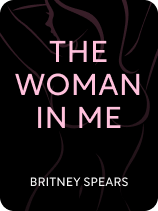

This article is an excerpt from the Shortform book guide to "The Woman in Me" by Britney Spears. Shortform has the world's best summaries and analyses of books you should be reading.
Like this article? Sign up for a free trial here.
Did Britney Spears suffer from abuse? How was Spears made the breadwinner of her family as a child?
The first major issue to shape Spears’s life was a toxic family pattern. In recounting her story in The Woman in Me, Spears lays bare many unhealthy traits of broken families, including abuse that persists through generations.
Find out how The Woman in Me reveals common traits of abuse in families.
Generational Trauma and Abuse
It’s a sad truth that many people who were abused as children repeat that behavior when they become adults. Britney Spears’s abuse begins with her paternal grandfather, who had his wife committed to an asylum and who forced his son—Spears’s father—to practice sports far beyond the point of exhaustion, demanding high performance and controlling his life. As an adult, Spears’s father adopted all these behaviors, driving Spears to perform at the cost of her mental and physical health, then locking her away when she rebelled to assert his control of his family.
(Shortform note: While it’s easy to condemn someone like Spears’s father, another perspective is that he too is a trauma survivor with poor coping skills. In The Body Keeps the Score, Bessel van der Kolk explains that trauma such as Spears and her father both experienced physically rewires the brain, making people hypervigilant to threats while sometimes compelling them to repeat old, toxic patterns. For instance, when someone is repeatedly told they’re not good enough, they may recreate the past abuse as a psychological means to reclaim control in a doomed attempt to pass the trauma along to someone else.)
It was Spears’s mother who pushed her into professional work while she was still developing as a child. When Spears was very young, her mom would also take her drinking on trips to the Gulf Coast where they’d both have alcoholic daiquiris. As money from Spears’s TV and music work came in, and as her parents’ jobs failed to pay the bills, teenage Britney was thrust into the role of family breadwinner with the full knowledge that everyone else was now dependent on her. Nevertheless, Spears recounts that any time a stressful situation arose within her family, she felt like she regressed to a younger age, especially when her parents exerted their control.
(Shortform note: While children who are pushed into the spotlight as Spears was may enjoy the excitement of celebrity at first, they’re too young to really have a say in the matter. Former child actors Taylor Momsen and Wil Wheaton have both said they were given no choice by their parents when they began their careers. Alyson Stoner has described in detail what she refers to as the “toddler-to-trainwreck industrial complex,” a systemic pattern of child exploitation in the entertainment business that ignores young performers’ developmental needs while subjecting them to physical and emotional stressors that adults would find hard to cope with.)
None of Spears’s family problems were ever seen by others. Spears writes that when she was a child, her mother put on a happy, welcoming face for all of Spears’s friends from school, making their house the cool place to hang out. Spears felt she always had to be “a nice person” and keep her actual feelings secret, which she learned in part from her mother’s people-pleasing behavior and partly from her upbringing in the American South, where being polite at all times is highly valued. The secret-keeping in Spears’s family reached an extreme during the conservatorship, when her father used the threat of exposing Spears’s alleged substance abuse and mental health problems as a means of exerting control.
| Toxic Politeness and Shame Spears hits upon two defense mechanisms—people-pleasing and secret-keeping—that do more harm than good. In Not Nice, psychologist Aziz Gazipura writes that most of the time, being nice to others doesn’t spring from kindness but from a fear of rejection. Gazipura says that people-pleasing behavior amplifies irrational guilt over how others feel and results in an unhealthy aversion to conflict. People-pleasing habits can be hard to overcome when they’re not just embedded in your family system but are rooted in culture, as in the American South where politeness is part of the regional identity. The other defense mechanism, keeping secrets, is also rooted in a fear of rejection. In Healing the Shame that Binds You, John Bradshaw explains that secret-keeping is a hallmark of toxic shame—unhealthy feelings of guilt, not for something you’ve done, but for who you are as a person. Toxic shame is a driver of addiction and codependency, and just like generational abuse, it can be passed on from parent to child. |

———End of Preview———
Like what you just read? Read the rest of the world's best book summary and analysis of Britney Spears's "The Woman in Me" at Shortform.
Here's what you'll find in our full The Woman in Me summary:
- The key takeaways of Britney Spears' memoir about her career and private life
- How the media's portrayal of Spears differed from her experiences
- How the music industry treats women differently than men






